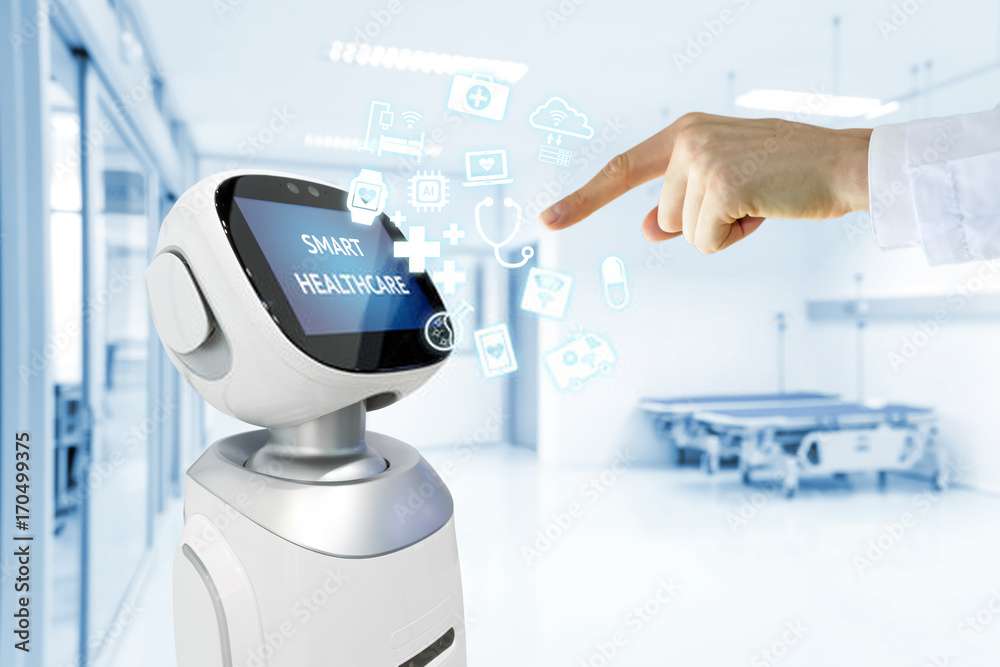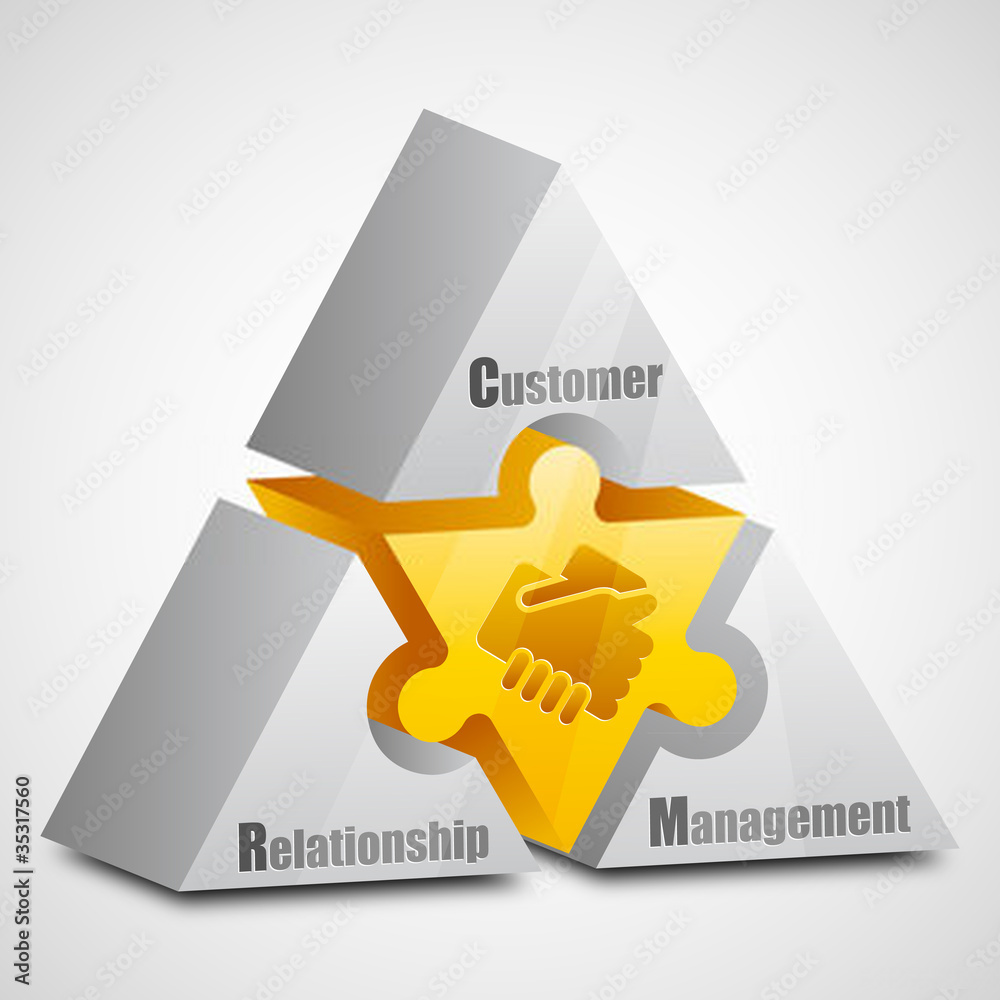If you compare the healthcare organizations of 10-15 years ago to today’s hospitals, you’ll see a startling difference. The most significant shift has been on the technological front. We’ve witnessed continuous adaption of advanced technologies, and the COVID-19 pandemic accelerated it beyond anyone’s imagination.
One of the significant areas of change has been how healthcare organizations – especially hospitals – interact with their patients. Customer engagement is crucial from the revenue generation viewpoint. That’s where CRM (customer relationship management) software comes in.
Let’s first understand what a CRM is before understanding its importance for marketing.
What is a Healthcare CRM Software?
Healthcare CRMs are client relationship management software designed primarily for use within the healthcare industry. Healthcare CRMs combine diverse data sources (consumer and psychographics, demographics of patients, behavioural data, social, financial, clinical, contact details, etc.) to provide a complete insight into the behaviour of patients and their actions. A CRM for the healthcare system aims to attract, interact with, and retain patients by allowing organizations to offer personalized services.
It’s worth noting here that medical CRM is not just limited to hospitality and medical providers but also extends to finance, pharmaceuticals, and other departments within the healthcare industry. The most effective CRM for healthcare marketing will combine customers’ financial, clinical and social information into an integrated system.
The Significance of a CRM for Healthcare Marketing
As we saw, a healthcare CRM allows you to personalize patients’ experiences. But what does it mean? Why is it important?
A healthcare CRM can create complete profiling of patients using various data points to build an entire profile. Healthcare CRMs will provide information on how effective your methods to engage patients are, including marketing on direct mail, social media, text messages, or email. Plus, you can also analyze and categorize your target patient population.
Research shows that because healthcare CRM solutions can help integrate and streamline sales and marketing processes, the adoption of CRM software is on a tremendous rise in the healthcare industry.
You could enhance the quality of healthcare by reducing mistakes caused in communication, manual record management, or any other reason. This helps you deliver enhanced decision-making, offer insightful medical and financial analysis, and streamlines customer relationship management in healthcare organizations.
Benefits of a CRM for Healthcare Marketing

Offers Personalization
A healthcare CRM allows you to categorize your patients based on various factors such as history, demographics, treatment, finance, etc. Thus, you can send personalized bills, post-visit care, and other relevant communication.
If you’re a patient, such a personalized experience is highly likely to improve your satisfaction. This way, your existing patients can spread the word about your services, helping you retain and acquire more customers.
Faster Communication
The Healthcare industry is based on human relationships more than anything else. And like any relationship, communication plays a crucial role. If you’re not quick enough to interact with your customer, you’re likely to lose out on a good chunk of business.
A healthcare CRM tool helps you move past the efficiency of your front-desk assistant by streamlining your calls, messages, and email communication. You can also automate responses to answer some of customers’ most frequently asked questions.
Gain Patients Insights
Everyone wants to offer superior customer service, but how do you start? Understanding them is the first step on the road. A healthcare CRM tool can be your gateway for it as it collects customers’ data from various touchpoints. You can alter the tool to give an enhanced experience as you get more and more data.
Store Patients’ Data
If you don’t use a CRM, storing data of thousands of patients becomes a big headache in an emergency or when your employees aren’t available. A CRM helps you solve this problem as it’s a central system that can be used for years to come. If you’re using a CRM, you must keep updating the data to provide an up-to-date experience to them.
In addition to this, a CRM offers an encrypted environment for data storage as you’re dealing with sensitive information for which any leak or alteration could be a disaster.
From the medical perspective, a doctor can track patients’ progress through the years and find out information such as their allergies, medicine dosages, etc. Such information enhances the quality of treatment and can be life-saving. All information is stored in the CRM instead of paper, and it doesn’t get lost.
Automated Customer Management
A healthcare organization must take care of hundreds of tasks to manage their patients. This includes form filling, report generation, appointment scheduling, patient notes, prescriptions, etc. These tasks might seem small, but they take away considerable time for the hospital. With its automation capabilities, a CRM tool comes to save the day.
With CRM software, you can manage your tasks with its task management module. It allows you to add functions to people, track their progress, set deadlines, etc. This eliminates a significant time and energy that goes after coordination and communication.
Better Patient Care
A CRM tool might not directly impact the patients’ lives, but it improves patient care. Be it storage of accurate information, gaining patient insights through analytics, or personalized communication, a CRM tool helps deliver better patient care. This is, by far, the most crucial value addition a CRM tool has to offer.
How to Optimize CRM Use in Healthcare Organizations

With changing times, healthcare organizations have started adopting CRM tools. It’s a good thing, but implementation by many of them leaves a lot to be desired. Let’s see how you can optimize CRM usage to leverage its maximum.
- Integration with your website & tools: As a business, you must interact with prospects to turn them into customers. When using a CRM tool, you must onboard them to begin with, personalized communication. Thus, you must integrate with websites and other third-party tools where they might be giving you data or filling up forms. You can follow it up with an automated email of their interest to initiate the relationship.
- Send automated appointment reminders: We’re humans, and we tend to forget things. Setting up automatic appointment reminders for your existing patients will boost your healthcare practice. You could go a step beyond by helping them set up one-click appointments to make the process even easier.
- Use historical data for marketing campaigns: If a patient has attended a particular event or downloaded an e-book related to a certain disease, you can segment them by specific business rules to target them via relevant emails or messages that might interest them.
- Keep your data up-to-date: It’s been studied that customer data decay 30-70% year by year. This means you must update them constantly to achieve your goals.
Below are the steps you could take to keep your data relevant:
- Find and collect all the customer details
- Organize the information based on the things you must know
- Prioritize customer information based on the value it brings to your business
- Get rid of any duplicate or inaccurate information
- Complete any missing information
- Create a uniform system for data entry
- Audit the process at least once per year
- Train people to use CRM more effectively: According to a study, 83% of executives cite lack of training as the reason behind not using a CRM. There’s no solution to it than training your staff to use it as effectively as possible. And by ‘staff,’ we don’t only mean the people involved in communication but also people from other departments who can lift the organization’s efficiency by using it.
- Combine your marketing and sales data: No matter what industry or company, marketing and sales departments will always fight to take the credit. There might be a feud between them, but both cannot work without each other. Combining data coming from both these departments is the best thing you could do to help them achieve their goals.
Here’s some crucial data that will help immensely:
- How did they hear about you?
- From which channel did they come?
- Have they been added to the email list?
- Are they currently engaged with you?
- What are their interests and pain points?
LeanSummits: A Leading Healthcare Marketing Agency

As healthcare organizations target customers directly, they need a complete marketing solution. Healthcare practitioners need patients’ data to meet their needs, access technology to treat them, and ensure they recover well post consultation.
Healthcare CRM comes as a boon as it automates the process of post-discharge patient care management. It allows physicians to track the progress made by their patients and gain advanced insights. In case of any issues, the system sends alerts to Doctors about the disease severity conditions of their patients.
At LeanSummits, we connect pre-care, during-care, and post-care to provide you with a complete marketing solution. Our technology platform is HIPAA compliant and resolves practitioners’ immediate need to provide comprehensive care to their patients.
As a proud partner to many healthcare businesses, we provide the following services:
- Search engine marketing and Search engine optimization
- Online reputation management and reviews-based marketing
- CRM based marketing
- Readmission marketing
- Cross practice marketing
Our business model is based on your success rather than your budget. LSS’ objective is to grow your business by providing you with the right tools. We do not want to sell you anything that will not generate a return as all of our initiatives are ROI-based.
Schedule a free consultation today!



